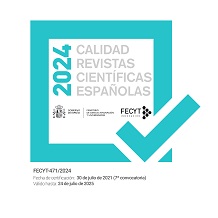The relation of biosafety at the cost-effectiveness in hospitalizations: nexus with the permanent instruction
Abstract
Aim: To identify whether the biosecurity can help to reduce the cost-effectiveness in hospitalizations; to know the degree of impact of permanent education for biosecurity in reducing costs related to hospitalization and to demonstrate the effects of biosecurity on reducing costs hospital-based literature.Method: It is a descriptive exploratory study, qualitative, through systematic review of literature on the basis of Nursing Database (BDENF), Latin American and Caribbean Center on Health Sciences (LILACS) and Scientific Electronic Library Online (SCIELO).
Results: It was identified permanent education as an agent in contributing awareness of nurses about the security needed in the profession.
Conclusion: The biosafety related to permanent education contributes to the reduction of the cost-effectiveness.
Downloads
-
Abstract250
-
PDF (Español (España))424
-
PDF (Português )424
The works published in this magazine are subject to the following terms:
1. The Publications Service of the University of Murcia (the publisher) preserves the copyright of the published works, and encourages and allows the reuse of the works under the license for use stated in point 2.
© Servicio de Publicaciones, Universidad de Murcia, 2011 (© Publications Service, University of Murcia, 2011)
2. The works are published in the electronic edition of the journal under Creative Commons Reconocimiento-NoComercial-SinObraDerivada 3.0 España(texto legal) “ a Attribution-NonCommercial-NoDerivatives 3.0 Spain license (legal text)”. They can be copied, used, broadcasted, transmitted and publicly displayed, provided that: i) the authorship and original source of their publication (journal, publisher and URL) are cited; (ii) are not used for commercial purposes; iii) the existence and specifications of this license is mentioned.
3. Conditions of self-archiving. Authors are allowed and encouraged to electronically disseminate the pre-print (pre-reviewed ) and / or post-print (reviewed and accepted for publication) versions of their works prior to publication, as it ensures a wider circulation and dissemination which may lead to a possible increase in its mention and a higher scope among the academic community. RoMEO color: green.












